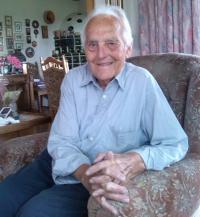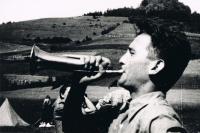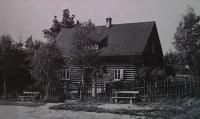Like a dappled dog A social democrat for life

Download image
Otto Kögler was born on January 3, 1921, in Sandau, District of Böhmisch Leipa, the second of five children. His father was a cabinetmaker in a factory and his mother was at first a shop assistant. Early on in his life, Koegler joined the ATUS. He was also in charge of a small singing group at the Lasalle choir and joined the Social-Democratic Youth at the age of 16. As an industrial salesman by training, he worked until 1941 for the local administration, before he was conscripted to the Wehrmacht. After the war, he made it back to his home only to find that his wife and children had already left. They had to flee – his son was just 11 months old at that time. It wasn’t until 1947 that he could see them again in the course of their reunion, after he had left the country with his parents. Thereafter, the family moved to Hofstetten, where Mr. Kögler became active in party politics again and where he helped to establish the local SPD party organization. He was made the chief of the expellees in the district. In 1952, the family moved to Ansbach, where Kögler picked up his learned profession of salesman for the government of the region of Middle Franconia. He remained for over 31 years in this position and represented the interests of his colleagues as a counselor for personnel affairs. He also held many other positions and roles in his long and chequered political life and in Ansbach. He was the chairman of the district association of the SPD and the leader of the party faction. When the local branch of the Seliger Community was established in 1954, he immediately joined it. Since 1993, he was its chairman.


